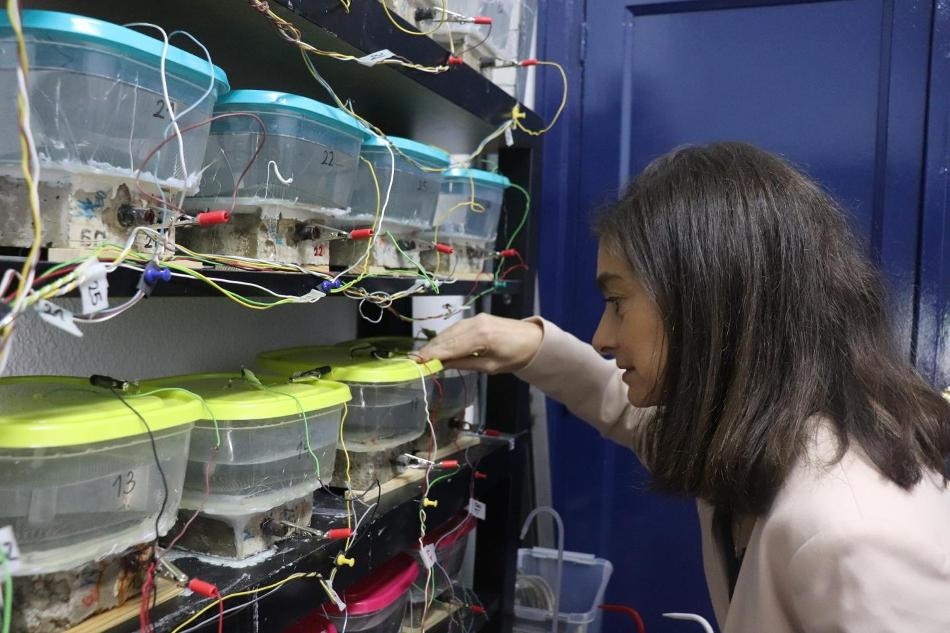Nov 13 2019
Since the time the Roman Coliseum and the Egyptian pyramids were constructed, humans have been looking for a versatile and cost-effective building material—one that is durable and can be easily produced and transported.
 Mercedes Sánchez, investigator of the study. Image Credit: Universidad de Córdoba.
Mercedes Sánchez, investigator of the study. Image Credit: Universidad de Córdoba.
All these properties can be found in concrete, which is a mixture of cement, water, and different kinds of salts and minerals. Because of this reason, concrete is now extensively used in all types of structures.
However, professionals in the construction sector across the world are preoccupied with a specific problem—steel bars that internally reinforce the structures composed of reinforced concrete are prone to corrosion. Due to this reason, the frames experience rapid, internal deterioration that may cause the buildings to collapse.
Although studies have been performed to establish the type of factors that largely impact this procedure, no effective solution has been identified so far.
Two agents are responsible for causing corrosion. One of the agents is the chemical reaction called carbonation. This reaction takes place when carbon dioxide comes into contact with a concrete covering. This not only reduces the concrete’s pH levels but also lowers its protective capacity against acids.
The other agent is the presence of chlorides or chlorine compounds. These compounds typically attack steel locally and lead to material loss.
This particular case was explored by the international research team RILEM (the International Union of Laboratories and Experts in Construction Materials, Systems and Structures) in a previous study.
We shared research projects performed beforehand in order to find out what is really happening in the reinforced concrete contact area when corrosion due to chlorides takes place as well as what factors mainly influence the process.
Mercedes Sánchez, Researcher, University of Córdoba
Sánchez was involved in the study.
The main objective of the study is to determine the type of factors that can be used by the scientific community in the upcoming studies. This would allow the researchers to make advances in studies to fight steel corrosion in reinforced concrete structures and to identify effective solutions to prevent, or at least prolong, the process.
The study results provide a catalog of parameters to the scientific community. These parameters have different degrees of influence, emphasizing which ones should not be priorities anymore. For example, this category includes the amount of water and cement and also the type of cement, both of which have already been extensively researched.
Upcoming scientific advances can also benefit from considering other kinds of factors such as the presence of tiny air voids, the distribution of humidity in concrete, and the characteristics of steel. While these factors strongly influence the development of corrosion of steel bars, they have received only limited scientific attention so far.
As such, Mercedes Sánchez is part of the University of Cordoba research group that is presently working to integrate substances into concrete mixtures. These mixtures will be able to capture the chlorine compounds and, in doing so, stop them from reaching the steel bars and expediting the corrosion process.
Concrete is both a material of the present and the future.
Now, different kinds of concrete are being made: concrete with bacteria that are able to repair cracks, sustainable concrete made from recycled materials and made for vertical gardens.
Mercedes Sánchez, Researcher, University of Córdoba
At present, Sánchez’s team is focusing on a new line of research that involves integrating the Internet of Things to track the reinforced steel structures in real time. This would enable decision-making and facilitate the inspection process.